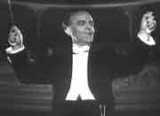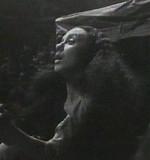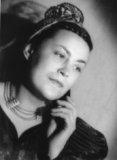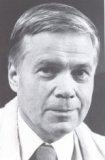
Fritz Lehmann
Born: May 17, 1904 - Mannheim, Germany
Died: March 30, 1956 - Munich, Germany
The esteemed German conductor, Fritz (Ludwig) Lehmann, studied at the Mannheim Conservatory and the Universities of Heidelberg and Göttingen. Fritz Lehmann was a conductor in Göttingen (1923-1927), Hildesheim (1927-1938), and Hannover (1929-1938). In 1934 he became conductor of the Händel Festival in Göttingen, was the Generalmusikdirektor in Bad Pyrmont (1934-1938), Wuppertal (1938-1947), and Göttingen (1946-1950). He subsequently was a teacher at the Hochschule für Musik in Munich (from 1953). A consummate conductor, he led notable performances in both the operatic and symphonic literature, ranging from the Baroque period to the 20th century.

Diana Eustrati
Born: October 22, 1916 - Andors, Greece
The Greek mezzo-soprano, Diana Eustrati, studied singing at the Royal College of Music in Athens. Diana Eustrati made her operatic debut at the Royal Opera House, Athens in 1940, remaining there until 1948. She sang at the Berlin Comic Opera for many years and between 1950 and 1959 was a member of the Berlin State Opera. Eustrati was well-known to European audiences, appearing in recitals and concerts in Cologne, Frankfurt, London and at the International Händel Festival, Göttingen. Her operatic roles included Carmen, Eboli in Don Carlo, Leonora in La Favorita, Dalila in Samson and Dalila, Azucena in Il Trovatore, Meg Page in Falstaff, Fricka in the Der Ring des Nibelungen, and Octavian in Rosenkavalier. Eustrati appeared in the premiere of Paul Dessau's The Trial of Lukullus at the Berlin State Opera in 1951. Important conductors with whom Eustrati worked included Abendroth, Fritz Lehmann and Fricsay.

Elfriede Trötschel
Born: December 11, 1913 - Dresden, Germany
Died: June 20, 1958 - Berlin, Germany
The German lyric soprano, Elfriede Trötschel, had a short, but versatile and successful career. As well as taking many leading roles at the Dresden State Opera, she was also a successful concert singer. Elfriede Trötschel began her career as a member of the Dresden Opera choir and became a soloist in 1933 after being selected by the Opera’s director, Karl Böhm. Her many roles on the operatic stage included Lola, Gretel, Esmeralda, Zerlina, Blondchen, Marie, Susanna, Nannetta, Zdenka, Jenufa, Donna Elvira, Bastienne, Oskar, Papagena, Marzelline, Sophie, Mimi and Madame Butterfly. She sang at the Salzburg Festival in 1941 and at the Berlin State Opera in 1950. In 1950 she sang Susanna at the Edinburgh and Glyndebourne Festivals, sang at the Vienna State Opera in 1952 and appeared at Convent Garden in 1953 in Strauss’s Arabella. Trötschel performed with some of the great conductors of the 20th century, such as Fritz Stiedry, Wilhelm Furtwangler, Krauss, Keilbert, Eugen Jochum, Kempe, Otto Klemperer, Karl Böhm and Fricsay. Elfriede Trötschel's recordings include Monteverdi’s Orfeo as Euridice (conducted by Helmut Koch), Weber’s Der Freischütz (as Agathe) under Kempe, Goetz’s The Taming of the Shrew, Haydn’s The Seasons (conducted by Fricsay), Strauss’s Der Rosenkavalier (under Ferdinand Leitner), Orff’s Carmina Burana (directed by Eugen Jochum) and the Matthäus-Passion (BWV 244) (with Fritz Lehmann).

Dietrich Fischer-Dieskau
Born: May 28, 1925 - Berlin, Germany
The German bass-baritone, Albert Dietrich Fischer-Dieskau (= DFD), is the youngest of three sons from his father's second marriage. His father Albert (1865-1937), a classical scholar, was a secondary school principal, and his mother Dora (1884-1966) was a teacher. His family came from a line of what might be called the 'professional' middle class: teachers, doctors, architects and clergymen; however, his father's mother was a member of the von Dieskau family, whose ancestors include Kammerherr von Dieskau for whom J.S. Bach wrote his Peasant Cantata (BWV 212) in 1742. Dietrich Fischer-Dieskau's musical interests and talent were evident early in his life, but he was no child prodigy. He learned to play the piano from his mother and continued to study piano throughout his school years.
Dietrich Fischer-Dieskau started singing as a child and began formal voice lessons at sixteen with Professor Georg A. Walter. When he was drafted into the Wehrmacht in 1943, Fischer-Dieskau had just completed his secondary school studies and one semester at the Berlin Conservatory. He was captured in Italy in 1945 and spent two years as an American prisoner of war. During this time he continued his musical studies on his own and took advantage of every opportunity to perform. After returning to Germany in 1947, he studied briefly with Professor Hermann Weissenborn at the Berlin Conservatory before beginning his professional career. Fischer-Dieskau once said: 'I passed my final exam in the concert hall'. Dietrich Fischer-Dieskau's professional career as a singer began in 1947 in Badenweiler when he sang in Brahms' German Requiem without any rehearsal - he was a last-minute substitute for a singer who was indisposed. He gave his first Lieder recital in Leipzig in the fall of 1947 and followed it soon afterward with a highly successful first concert at Berlin's Titania-Palast. In the fall of 1948 Dietrich Fischer-Dieskau was engaged as principal lyric baritone at the Municipal Opera (Städtische Oper) in Berlin, making his debut as Posa in Verdi's Don Carlos under Ferenc Fricsay. Subsequently, Fischer-Dieskau made guest appearances at the opera houses in Vienna and Munich. After 1949 he added concert tours in England, Holland, Switzerland, France and Italy. He made regular opera appearances in Bayreuth between 1954 and 1961 and in Salzburg from 1956 until the early 1970's (he made his Salzburg concert debut in 1951 with Gustav Mahler's Songs of a Wayfarer under Wilhelm Furtwängler). He garnered great critical acclaim for his detailed, insightful and imaginative interpretations and for the almost infinite variety of colors and shadings in his voice. As an opera singer, Dietrich Fischer-Dieskau performed mainly at the Deutsche Oper Berlin and at the Bavarian State Opera in Munich. He also made guest appearances at the Vienna State Opera, at Covent Garden in London, at the Hamburg State Opera, at the great opera festivals in Bayreuth and Salzburg, in Japan and at the King's Theater in Edinburgh during the Edinburgh Festival. His first concert tour in the United States took place in 1955, and he gave his first lieder recital at New York City's Carnegie Hall in 1964. Dietrich Fischer-Dieskau's commitment to contemporary music led to his participation in the first performances of works by many composers, including Benjamin Britten, Samuel Barber, Hans Werner Henze, Ernst Krenek, Witold Lutoslawski, Siegfried Matthus, Winfried Zillig, Gottfried von Einem and Aribert Reimann. As 'the world's greatest Lieder singer' (Time magazine), he regularly sold out concert halls all over the world until his retirement at the end of 1992. The precisely articulated accuracy of his performances, in which text and music were presented as equal partners, established standards that endure today. The current widespread interest in German Romantic art song is mainly due to his efforts. Perhaps most admired as a singer of Schubert lieder, Fischer-Dieskau had, according to critic Joachim Kaiser, only one really serious competitor - himself, as over the decades he set new standards, explored new territories and expressed unanticipated feelings and emotions. Dietrich Fischer-Dieskau ended his more than 45 years of concert activity at the beginning of 1993. He made his unannounced farewell to public performance with his participation in a gala concert at the Bavarian State Opera in Munich on December 31, 1992. Since that time he has kept himself fully occupied as a teacher, conductor, reciter and author. 
Helmut Krebs (* 8. Oktober 1913 in Aachen; † 30. August 2007 in Berlin) war ein deutscher Opern- und Oratorien-Tenor. Helmut Krebs wurde in Aachen geboren und wuchs in Dortmund auf. Die Oberschule absolvierte er in Berlin. Seine Opernkarriere begann 1937 an der Berliner Volksoper, wo er den Monostatos aus Wolfgang Amadeus Mozarts "Die Zauberflöte" sang. 1938 musste er wegen Kriegsdienstes seine Karriere unterbrechen, die er dann 1945 mit Auftritten an der Düsseldorfer Spieloper fortsetzte. Schon 1949 trat er mit dem Bariton Dietrich Fischer-Dieskau auf. Krebs sang 1949 bei der Uraufführung von Carl Orffs "Antigonae" bei den Salzburger Festspielen unter Ferenc Fricsay und bei der Erstaufführung von "Oedipus der Tyrann" unter Heinrich Hollreiser in Wien. Ausserdem übernahm er 1954 bei der konzertanten Uraufführung von Arnold Schoenbergs Moses und Aron die Partie des Aron. Der Tenor und Countertenor gehörte fast 40 Jahre dem Ensemble der Deutschen Oper Berlin an. An der Deutschen Oper wirkte Krebs unter anderem in Boris Blachers "Die Flut" und "Rosamunde Floris" und Hans Werner Henzes "König Hirsch", "Der junge Lord" und "Wir erreichen den Fluss" mit. Dort wurde er 1963 zum Kammersänger ernannt. Ab 1957 unterrichtete Krebs an der Musikhochschule Berlin, ab 1966 hatte er eine Professur für Gesang an der Musikhochschule Frankfurt inne. 1987 trat Krebs endgültig als Ensemblemitglied in den Ruhestand. Jedoch kehrte er in Götz Friedrichs Inszenierung von Leoš Janáčeks "Aus einem Totenhaus" noch einmal auf die Bühne der Deutschen Oper zurück. Er wurde auf dem St. Annen-Kirchhof in Berlin-Dahlem beerdigt.
Johann Sebastian Bach
Saint Matthew Passion, BWV 244 Helmut Krebs, tenor Dietrich Fischer-Dieskau, baritone Elfriede Trötschel, soprano Diana Eustrati, alto Großer Chor des Berliner Rundfunks Boys Chor der St. Hedwigs-Kathedrale Berlin Runfunk-Sinfonieorchester Berlin Fritz Lehmann 9-10.04.1949 |

